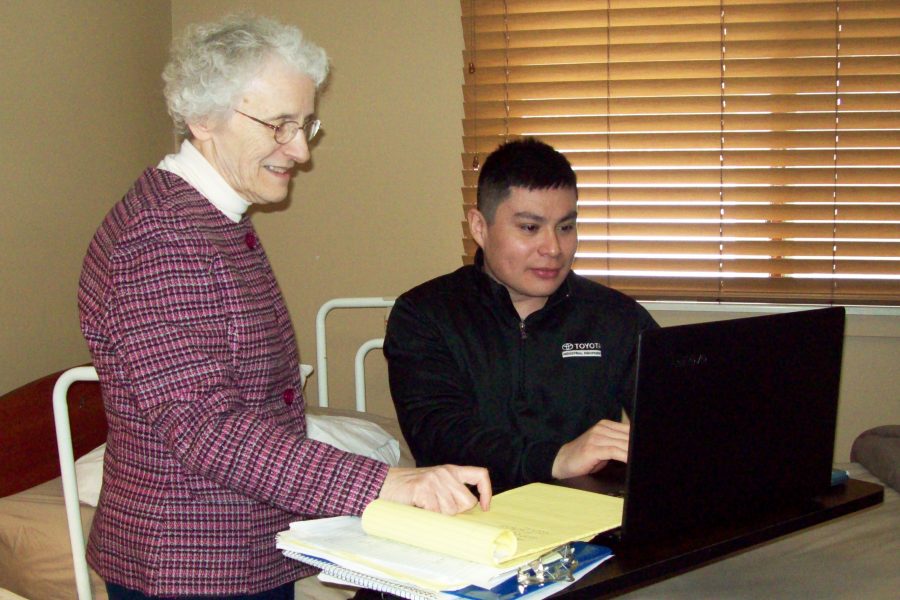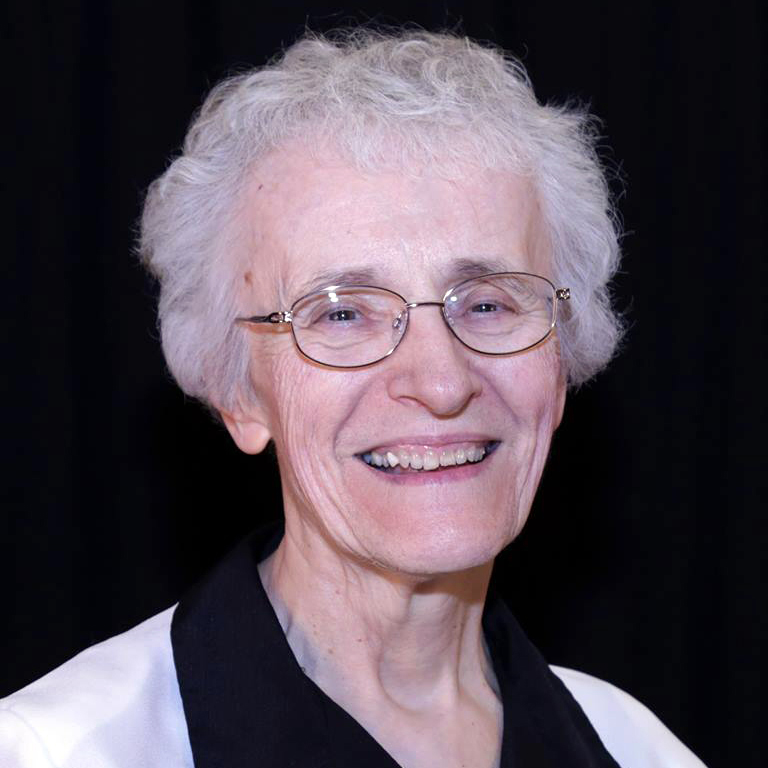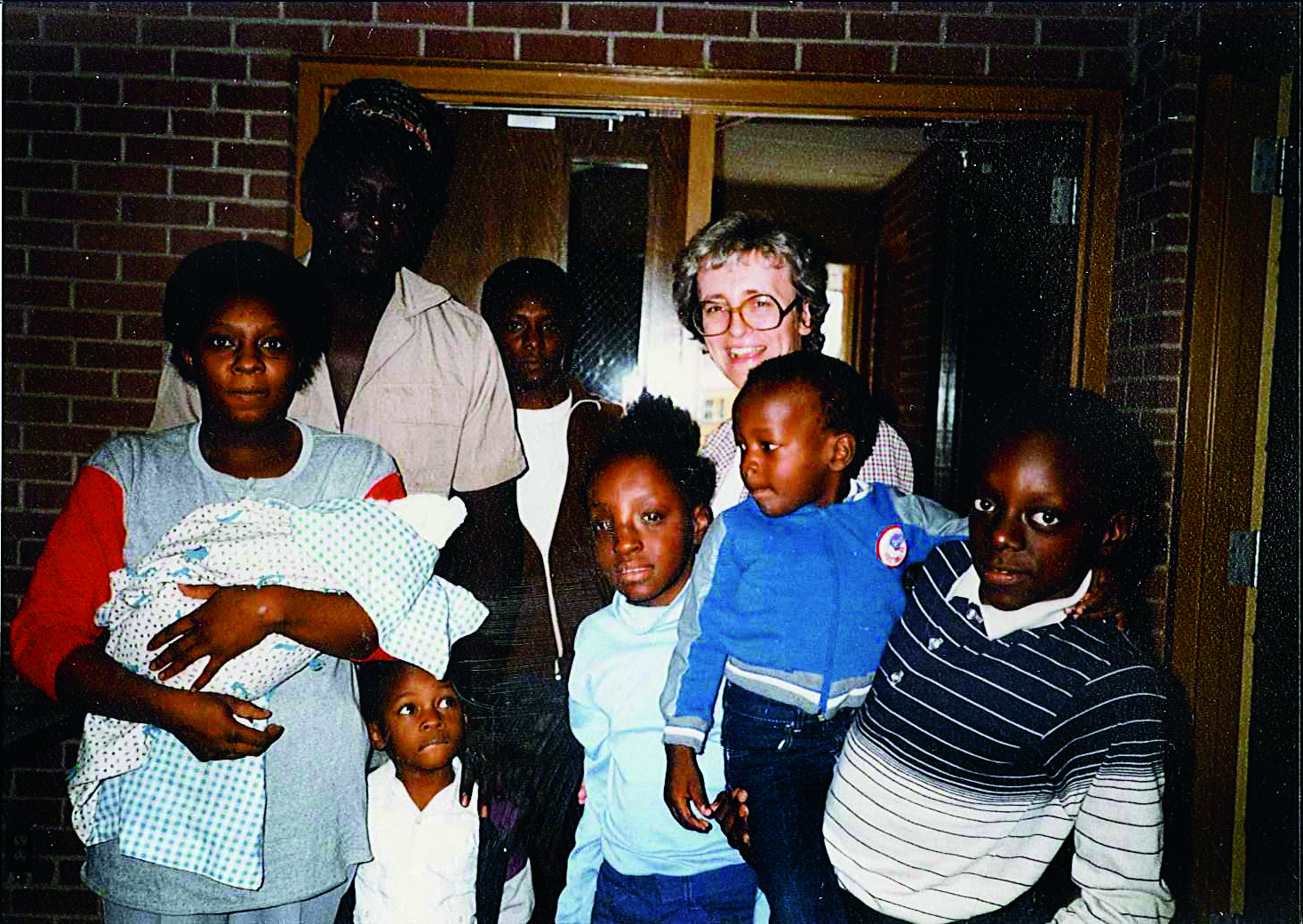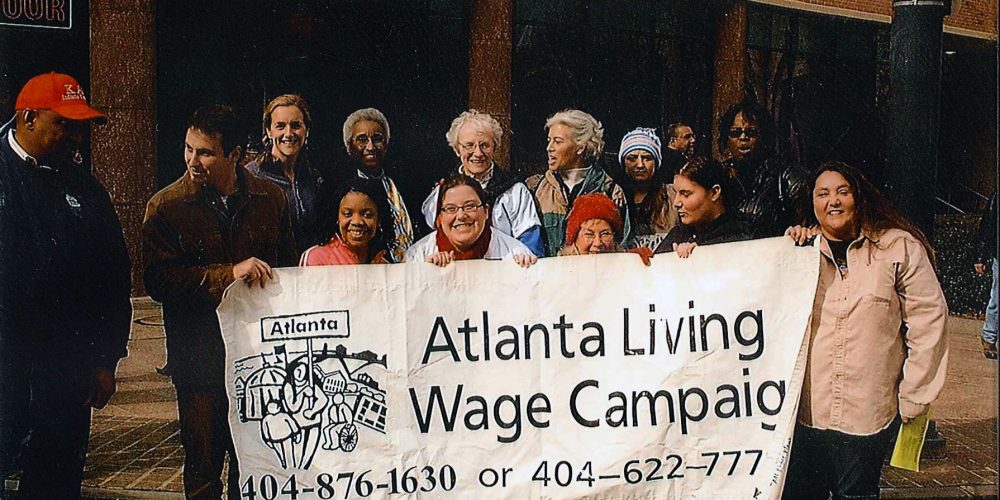
“It is through our ministries and our lives that the Dominican Sisters of Grand Rapids are called to stand with people who are poor and marginalized. We must speak out against injustice, speak up for those who have no voice, and empower people who are powerless,” said Joyce Ann Hertzig, OP, former educator, parish minister, and social service advocate.
“Catholic Social Teaching informs and demands that we speak out against injustice and have the same empathy and compassion that Jesus showed people he encountered,” said Sister Joyce Ann, a Catholic sister for nearly 80 years and member of the West Michigan congregation that founded St. John’s Home (now named D.A. Blodgett St. John’s Home) in 1887 to provide care and housing for children left orphaned by illness, death, or poverty.

“In the 1980s in Mobile, Alabama, I was living and working in what was then known as the poorest county in the United States. The impoverished lived next door to the wealthy landowners. Many homes, truly former slave shacks, had no running water; people traveled and carried water home in containers for drinking, cooking, and bathing,” shared Sister Joyce Ann.
Describing what it was like in these two Southern cities in the 1980s and 1990s, she said: “I was immersed in the reality of the South. It was rural. It was integrated yet also segregated black and white. The Ku Klux Klan was active.”
Promote Justice, Empower the Powerless
“Racism and cruelty, social and economic injustice and disenfranchisement, these are the sins we need to confront in our neighborhoods and world,” said Sister Joyce Ann who has long spoken out against injustice and preached Catholic Social Teaching through her ministries.
“Our Directions in Ministry guide us in showing empathy and compassion and to use our voices to confront injustice. We want to live like Jesus, showing Love, through presence in our time and place in the world. One of our Directions in Ministry states: “‘As we take inventory of the condition of our world, we raise our voices to say that the people among us who are the most in need, who are most vulnerable, need to have our attention and they need to have supportive resources,’” said Sister Joyce Ann.
We believe that the normative, common element in the human family is our humanity. We affirm that all with whom we come into contact are entitled to the basic rights that come with our common humanity, and are entitled to be treated with dignity and respect. We pledge to see first the common ground of our humanity, and to allow our differences only to enrich, and not to disparage us. In all of our undertakings, we will notice first and foremost the human person before us.
DSGR Corporate Stance on Racism 1999
In our prayers to God we remember our solidarity with all humanity.
Sister Joyce Ann rises with the sun to tend and nurture one of God’s greatest creations: the human being.
Daily, at Morning and Evening Prayer, the Sisters in Grand Rapids reflect on the Psalms, which express every mood of the human heart: praise and thanksgiving, petition and longing, hope and confidence, lament and complaint, confusion, and even rage.
It is this sense of solidarity, compassion, and mercy that awakened the heart of Sister Joyce Ann early in her vocation at a vowed Catholic Sister.
After graduating from Marywood Academy and Aquinas College, she taught in rural schools in Michigan. Then, in 1984, Sister Joyce Ann was missioned to Holy Trinity, Alabama, and then Mobile, Alabama. “I was a principal and a teacher for four years, then served 14 years in curriculum development and assessment,” explained Sister Joyce Ann.

Noticing and responding to people in need was something Sister Joyce Ann continued in her role as parish social ministry coordinator for Catholic Social Services in the Archdiocese of Atlanta, Georgia, from 2003 to 2006. “Our work raising awareness about poverty and the need for a living wage was just one program of many we worked on,” said Sister Joyce Ann.

“There, somebody I worked with referred to me as spider woman because she said I excelled at making connections between people, organizations… at creating collaborative environments. I welcome that imagery. My life in ministry has been about helping others see where the needs are and connecting them with those in need,” says Sister Joyce Ann.
Support citizenship and employment opportunities
Upon Sister Joyce Ann’s return to Michigan, she began tending to the needs of people who live in the United States and for whom English is not a first language. Her days and evenings were split between two ministries: tutoring in the Grand Rapids Community College (GRCC) Adult Education English Language Acquisition (ELA) program preparing students to earn their National Career Readiness Certificate, and mentoring in the Dominican Sisters’ ministry assisting adults working toward citizenship in the United States.
She recalls what steps led her to these ministries: “I began volunteering at the Hispanic Center of West Michigan in Grand Rapids in 2012. They did not really have a formal position so I just used to show up and help the high school students, this one with math, that one with English.” This work of tutoring led her into her position with Grand Rapids Community College and to further service to help others become citizens.
“It is an honor for me to walk with immigrants seeking full participation in the United States through achieving citizenship status. Each story is unique but each desires to provide a better life for their family.
“I am a witness to the immigrant community. I want to be one body standing here, speaking, for the 20 who cannot. I want to encourage students who have not been able to succeed at testing into workforce training and better jobs due to unfamiliarity with a language, fear, or shame,” explains Sister Joyce Ann.
Sister Joyce Ann dreams of a society in which all gifts are tended and nourished. “Whether they are in need of confidence, a skill, a strategy, I want to prompt them, push them to the edge to discover what they can do. That’s where hope is, where opportunity is. All it takes is once to break through; I’m all about finding the ‘onces’.”

Author: Stacy Spitler, Director, Dominican Sisters ~ Grand Rapids
Study Resources
- Gospel Call to Justice, North American Dominican Promoters of Justice, Peace, and Integrity of Creation
- Ku Clu Klan Rally in Mobile, Alabama, 1980 — Klan membership in Alabama peaked in 1965 at more than 30,000 members during the civil rights era. The Klan remained active following the civil rights movement. In 1981, Klansmen lynched Michael Donald, a Black man living in Mobile.
- “Toward Equal Justice: A Legacy of Resistance, Sacrifice, and Service”
- “The Civil Rights Movement in Mobile, Alabama, 1942-1963” — African-American community’s struggle for social and economic equality…
“We want our eyes open to the reality of other people. To hear what they are not able to articulate. We want to see justice run like a river. We want to be able to see differently.”
Margaret Mayce, OP, NGO Representative to the United Nations

